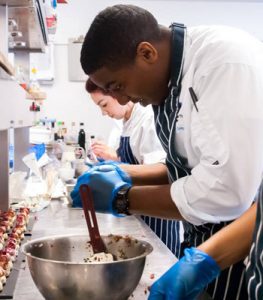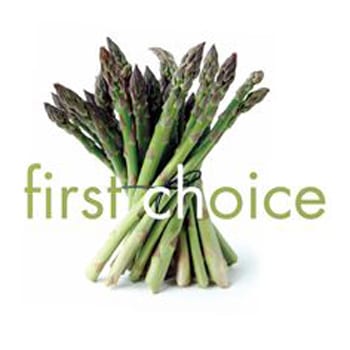A New GCSE Could Encourage More Teenagers to Consider a Career in Food

From 2016 students choosing to study for the qualification in Food & Nutrition will face a rigorous exam testing them on culinary techniques as well as food traditions, kitchen safety and the science of healthy eating.
The two year course will see them learning how to make bread and pasta, as well as mastering tricky kitchen skills such as filleting fish, making choux pastry, learning how to julienne vegetables and making a variety of sauces from traditional gravy to a veloute.
The course will also require the students to understand food provenance, British and international culinary traditions, food labelling and how to calculate energy and nutrition values.
The new GCSE has been developed with input from experts including the authors of the School Food Plan and builds on the best of the three main current food-related GCSEs; design and technology, food technology, home economics and hospitality and catering.
Minister for School Reform Nick Gibb said: “At the heart of any food qualification should be a focus on developing practical cookery skills and a strong understanding of nutrition.
“That’s why we’ve created the cooking and nutrition GCSE so that rather than designing food packaging, students will now learn the essentials of food science, nutrition and how to cook healthily.
“This qualification will give young people the preparation they need to succeed in the food and hospitality industries as well as giving them vital life skills.”
But Bridget Halford, Head of Department for Hospitality at the City of Bath College, does not think that the GCSE will have any effect on the higher education courses offered at the college.
“The GCSE food will have no impact at all on the Catering qualifications and students coming into college,” she said. “Schools don’t have the skills needed to turn students into professionals.”
But the hope is that, at the very least, the new qualification will inspire a new generation.
Henry Dimbleby, co-founder of the Leon restaurant chain and a government advisor on school food, said: “This qualification is another big step forward for food education in this country following the introduction of cooking as compulsory in the curriculum this term for all children up to the age of 14. I particularly like the new emphasis on understanding and enjoying British and international cuisines and encouraging students to develop their own recipes. It is a serious qualification that will be another step towards creating a healthier and happier society.”
Jo Ingleby is the chef-in-residence at Redcliffe Children’s Centre in Bristol and chef tutor at Demuth’s Vegetarian Cookery School in Bath and believes that anything that encourages young people to develop confidence with food is a positive step.
She said: “At Redcliffe we really believe that you need to start from as early as possible rather than waiting until children reach primary school. We don’t ‘Teach’ children at Redcliffe, we are led by what they are interested in. For Early Years children this approach means that they develop confidence with food at their own pace rather than being just told about it. From the children I still know who have been to Redcliffe over the years they carry on with a positive attitude to food and cooking as they grow up.
“I have done lots of work in schools, both primary and secondary, and they all vary hugely. Some are amazing and are really exciting in their approach to food, others are just following the curriculum. I am always amazed when I work with adults that so many people don’t know how to chop safely and don’t feel confident preparing dishes from scratch with no recipe.
“Education in schools has got better in the last few years but there is still a long way to go. What concerns me is the generation who have missed out and are now adults with young children and little or no confidence with cooking. This is a vicious circle that we need to break! Many schools are now linking food to growing and cooking and there is real positive change with projects like Food For Life going into schools nationwide.
“I think it is good to extend the skills of students. My daughter is in Year 7 and has just been making dishes which I would happily let four year olds at Redcliffe make. There is a lot of dumbing down in schools and what really gets me is that they aren’t shown how to use sharp knives safely! I’ve worked in many schools who never use knives or if they do they are blunt and dangerous!”











